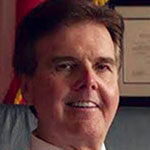For Politicians, Personal Health Is Risky Territory
By John Savage
Reporting Texas

Democratic Presidential nominee Hillary Clinton has been dogged by conspiracy theories about her health during the presidential campaign. Photo courtesy of Alex Campbell/Medill News Service via Flickr.
For Reporting Texas
In the closing days of the presidential campaign, Donald Trump unveiled a new television attack ad showing his Democratic opponent, Hillary Clinton, nearly crumpling to the pavement as she left a Sept. 11 memorial service.
“Hillary Clinton doesn’t have the fortitude, strength or stamina to lead in our world,” a male narrator says ominously as the clip of Clinton plays.
The message was clear: Clinton is not healthy or vigorous enough to serve as president. The ad’s approach was classic Trump: promoting a fringe conspiracy theory, in this case about Clinton’s supposed failing health, to a national audience.
It turns out Clinton had been diagnosed with pneumonia two days before her Sept. 11 fainting spell, but she chose to keep the information secret. She stayed home for a few days to recuperate, and then returned to the campaign trail.
Political scientists and strategists in Texas say that the decision to go public with an illness is almost always politically fraught. To avoid appearing weak or giving ammunition to a rival, leaders have long tried to hide illness or pain from the public. Texan politicians are no exception:
In July, Gov. Greg Abbott, who is paralyzed from the waist down, suffered second- and third-degree burns on his lower legs while on vacation in Jackson Hole, Wyoming. He did not explain how he was injured until two months later, saying he had been scalded by hot water in a shower but did not feel it for several minutes because of his paralysis.
Cal Jillson, a political scientist at Southern Methodist University, said the Abbott camp most likely was being secretive because the scalding didn’t fit a politically useful narrative.
“It didn’t project strength,” Jillson said.
However, Jillson added that Abbott used his paralysis to play up his perseverance and strength in the 2014 gubernatorial campaign.
“He made the argument that lots of people say they have a spine of steel, but he actually has a spine of steel,” Jillson said. “It was an example of turning a health issue into a positive.”
Lt. Gov. Dan Patrick did not disclose his long-ago history of depression until the 2012 campaign, when a surrogate for then-incumbent Lt. Gov. David Dewhurst, against whom Patrick was running, released documents detailing Patrick’s hospitalization for depression in the 1980s and a 1986 suicide attempt.
Two days later, Patrick responded on his website: “I have never hidden the fact that I struggled with depression in the 1980s. I kept many of the details private. They were personal, like all medical issues.”
He accused Dewhurst of engaging in “one of the dirtiest attacks in the history of Texas politics.”
Rice University political scientist Mark Jones said that voters were not troubled by Patrick’s struggle with mental health because many likely had friends or relatives with similar problems. Also, he said, Patrick’s problems happened so long ago that they didn’t view it as relevant to his ability to do the job.
“Engaging in a negative campaign about someone’s health can very easily boomerang against you,” Jones said, “and in this case it did.”
Patrick trounced Dewhurst in the election.
On July 1, 2011, then-Gov. Rick Perry underwent spinal fusion surgery. A month later, a New York Times reporter asked a Perry spokesman if the surgery was causing the governor any problems. “Not at all,” the spokesman replied.
In fact, Perry was suffering through a difficult recovery that likely contributed to his poor performance in a November 2011 Republican primary debate, when he could not name the third of three federal agencies he would eliminate if elected. “Oops,” Perry said, but his campaign faltered afterward, and he withdrew from the race two month later.
He told Fox News, “If there’s one thing that I could change in my campaign I would have moved that surgery I had the first of July back to the first of January.”
Luke Macias, a San Antonio-based conservative political strategist, said Perry had nothing to gain by going public about his health issues.
“‘You’re going to have to make allowances for me because I’m on pain medication’ is not a great way to kick off a presidential campaign,” Macias said.
In the 2016 presidential campaign, Trump has pounded away at Clinton’s alleged health issues for months, and his supporters have circulated unfounded rumors that Clinton suffers from various ailments, including Parkinson’s disease, seizures and a heart condition that forces her to wear a defibrillator.
Long-time Texas Democratic strategist Jason Stanford says it makes sense that she didn’t reveal her pneumonia.
“If she had disclosed the diagnosis, it would have led to wild speculation,” he said, “and it wouldn’t have appeased those people.”

Hillary Clinton
Pneumonia
Sept. 9, 2016: Clinton diagnosed with pneumonia.
Sept. 11, 2016: Clinton reveals diagnosis after nearly falling down at Sept. 11 memorial event.
Time elapsed: Two days.

Greg Abbott
Burns
July 7, 2016: Abbott suffers third-degree burns while vacationing in Jackson Hole, Wyoming. Abbott declines to say how the incident happened.
September 18, 2016: Abbott reveals that he burned himself in the shower.
Time elapsed: About three months.

Dan Patrick
Depression
January 1986: Suffering from depression, Patrick enters a psychiatric hospital.
May 2014: Patrick releases a statement about past battles with depression after health documents leaked.
Time elapsed: About 28 years.

Rick Perry
Back problems
November 2011: Perry flubs his performance at the GOP presidential debate.
December 2011: Perry, who had back surgery in July, reveals that his recovery from surgery makes campaigning difficult. He withdraws from the race in January 2012.
Time elapsed: One month.

Dawnna Dukes
Car crash
August 2013: Injured in a rear-end car crash, Dukes misses most of the 2015 legislative session.
September 2016: Reveals that her injuries were worse than she had disclosed, and that she will resign from the Legislature in January 2017.
Time elapsed: About 17 months.